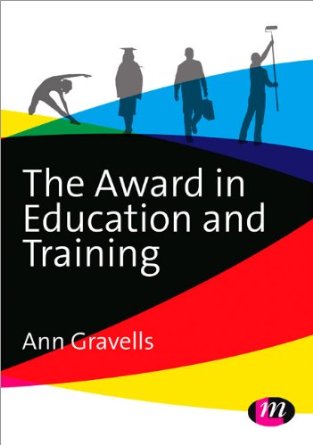 |
 |
Teachers and Professionalism | |||||
|
|
|||||||
|
DEFINING PROFESSIONALISM
Most definitions of �professional� (as a noun) state that it refers to a person engaged in one of the learned professions � traditionally defining these as Law, Medicine and Theology (because they required �advanced learning and high principles�) � but also sometimes including the liberal arts or sciences.
Wikipedia defines a professional as �a member of a vocation founded upon specialised educational training.�
There has long been a debate about whether teaching qualifies as a �profession�.
|
|||||||
|
See �Is Teaching a Profession?� by Robert Runte � who argues that the nature of �the professions has changed so much over the past 100 years that there is now little left to distinguish professionals from other workers.�
Runte suggests that �If the experts are right and there really is no such thing as a profession any more, then continuing to argue over whether education is a profession is not only wasted effort, it is dangerously misleading.�
The debate is further complicated with regard to those who practice in the Lifelong Learning sector because the entry routes, qualifications and expectations required of FE tutors were thought to differ significantly from those required of teachers in primary and secondary education. With greater emphasis now being placed on Lifelong Learning and with more flexible approaches to delivery of vocational education, the boundaries between secondary and FE teaching are gradually becoming blurred.
|
|||||||
|
DIY PROFESSIONALISM
In 2007, Demos (the Civil Service think tank) published a report entitled �DIY professionalism: futures for teaching� about teacher professionalism. The report acknowledged that teachers� responsibilities are more diverse than ever and proposed that a new professionalism was required.
�Today, we expect teachers to ensure child safety, regenerate whole communities and to search young adults for weapons. The public�s and policy makers� sense that teachers can save society, the pupils� trust in them and teachers� own shared norms and ethics all shape and define teacher professionalism.� (p.2)
The report suggests that �professionalism� is largely defined not nationally but locally and individually (as reflected in the title of the report.)
�Many teachers are increasingly active in shaping and defining their own professionalism. However, today this is as much a source of constraint and exhaustion as it is of creativity, and many feel that they have much less control over their work. As teachers become much more diverse as a group and face some difficult challenges there is an urgent need to re-connect teachers with their changing professionalism and to show how it increasingly lives in their everyday habits, relationships and values.� (p.2)
�In the past, professional status, and thus the self-determination that came with it, was rooted in the public prestige, autonomy and socialisation processes associated with the professions. These public rituals carried the burden of sustaining a professional ethic. Today, it seems to be done by individual teachers to themselves rather than by the profession to itself � it seems to have been privatised and gone from being a collective process to an individual one.� (p.11)
In conclusion, the report says:
�For teachers, the challenge is to come to terms with the new character of their professionalism. Today, it is more informal and personal than ever before and this brings with it a new set of opportunities and threats. The threats are of stress and exhaustion for individual teachers and of a hidden, creeping fragmentation of the profession as a whole. But with these threats come a host of opportunities rooted in the creativity and entrepreneurialism of the profession both at school and at system-level.� (p.24)
View the whole report here.
|
|||||||
|
TRAINING & DEVELOPMENT AGENCY
The Training & Development Agency (TDA) (since superseded by the Teaching Agency in 2012) avoided the debate about whether teaching is a profession and focused on the career structure for teachers that it proposed - listing the various requirements of "professionalism" as:
The first of these requirements (Attributes), which comes closest to defining �professionalism�, concerns:
|
|||||||
|
INSTITUTE FOR LEARNING (IfL)
In a keynote presentation at the LSIS conference, �Self Regulation � shifting the paradigm� (Feb 2009), Sue Crowley (Chair) and Toni Fazaeli (Chief Executive) of the Institute for Learning, proposed a paradigm for professionalism within further education that embraces:
The title of the presentation - �Towards a New Professionalism: Developing the Skills of the Teaching Workforce� - would suggest that the approach and focus of the IfL has been guided by an acknowledgement that professional skills (and knowledge?) are paramount to the effective performance of those who teach in the FE sector.
However, the twin focus of the IfL is on CPD facilitated by Reflective Practice � placing the onus of responsibility for maintaining those professional skills firmly on the shoulders of practitioners.
Unfortunately, in the present climate of managerialism that seems to pervade the FE sector, the perception of tutors may well be that this is a further onerous task and may be reluctant to embrace what they perceive to be another big stick with which to be beaten.
|
|||||||
|
MARKET FORCES & PROFESSIONALISM
In a paper entitled "Changing notions of teacher professionalism in the Further Education sector" (presented at the British Educational Research Association Annual Conference in 1998) Farzana Shain of Keele University suggested that FE tutors' perceptions of themselves as professionals were being eroded by marketisation and managerial control.
"Central to the processes of regulation and intensification is the discourse of managerialism that has pervaded the new management of FE in an attempt to elicit the compliance of workers in new modes of control over their work. Ostensibly, managerialism has been introduced into Education and the public sector as a rational process, linked with new principles of funding, efficiency and professionalism."
There is a feeling amongst FE tutors that they are constantly being �regulated� � by the QA procedures and processes of their employing organisations � often imposed because of the equation (by college managers) of quality, accountability and inspection � and the subsequent plethora of regulatory mechanisms to ensure that tutors are �doing their job properly�.
In her report on the LSIS conference, �Self Regulation � shifting the paradigm�, Caroline Mager (Executive Director, LSIS) acknowledges that �The culture of compliance engendered by New Public Management theory has sapped the agency and self-determination of the workforce so that we must now consider how to renew that sense of professionalism.�
Mager also stresses that
�Professional behaviours must apply in all parts of the sector, as well as in the key roles that focus on pedagogy and teaching, to encompass all the roles that contribute to excellent services. �. Quality improvement and professionalism has to run right through the ecology of the college or provider � it has to be systemic. However excellent the teaching, if the organisation as a whole is not effective, for example, if enrolment processes and administrative systems do not work well, then the service overall will be diminished.�
Crowley and Fazaeli seek to navigate a path for the IfL that is both (self-)regulatory whilst preserving the benefits of practitioner autonomy.
�The types of professional bodies are on a continuum ranging from purely regulatory to loose associations of practitioners. Some professional bodies focus on ensuring the confidence of the public, on upholding rigorous standards and codes of conduct and thus are regulatory bodies. These professional bodies often issue licences to practise. Some bodies also major on advancing knowledge similar to �learned societies�. ... Some professional bodies have a strong focus on self-improvement and developing the highest levels of professionalism, and thus have a vital role in improving the quality of services. IfL sees its role as maintaining standards with regulatory functions, as well as fostering aspiration and advancing knowledge with distinctive and valuable quality improvement functions for the further education sector. IfL�s three strategic aims are to: give benefits and services of value to teachers and trainers for their work with learners; raise the status of practitioners; and increase the voice of members, teachers and trainers, to influence policy.�
|
|||||||
|
In an article entitled, "Towards a new professionalism in the further education sector", published in teachingexpertise (the online journal of Optimus Education), Lee Davies suggests that the main features that define teacher professionalism are CPD and Reflective practice.
|
|||||||
|
Preparing to Teach in the Lifelong Learning Sector
Ann Gravells
|
The Award in Education and Training
Ann Gravells
|
 |
|||||